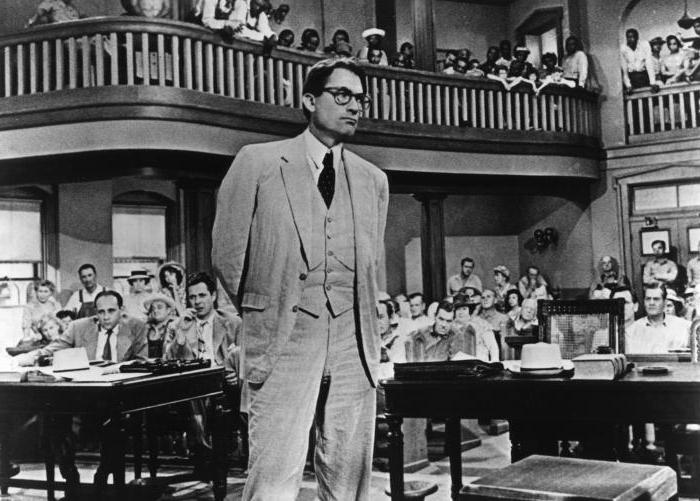Jurisprudence has always been considered incredibly difficult to study. At the same time, these are very important and necessary disciplines that were relevant even thousands of years ago. Mastering the legal sciences is not so simple. Today there are a large number of educational institutions where you can acquire the necessary knowledge and get the appropriate specialty. But sometimes the knowledge that teachers give is simply not enough for the subsequent implementation of professional activities. What to do in a similar situation will be described in our article.
About jurisprudence
First you need to understand the very concept of "jurisprudence." In the dictionary, this term is interpreted as a set of scientific and legal disciplines. Law is a complex and multifaceted concept. It includes information on state, judicial, self-government, as well as economic activities.
In the Russian educational process, jurisprudence is divided into several industries. So, in schools, children study four general disciplines: politics, sociology, law and economics. All items presented are closely related. They form the totality of social sciences - social studies.
Higher Russian education is shared by school social studies. Sociology, law and economics diverge in different specialties. At the same time, politics is included in law, as a result of which the main scientific discipline in the field of jurisprudence is formed: this is TGiP - the theory of state and law. About books about jurisprudence for beginners will be described later.
Laws
Law schools do not immediately study law. In the first year students study history, philosophy, TGiP and other general disciplines. Only at the next steps do varieties of legal subjects appear. They should focus on. Students analyze laws, by-laws and other types of normative collections. It is this literature that is the basis, the skeleton for the rest of the scientific organism.

Persons studying at the law faculty should pay more attention not to journalism, but to the main books on jurisprudence. This is the Russian Constitution, the first two chapters of which should be known by heart, as well as the main codes: criminal, civil, administrative and labor. In the relevant scientific disciplines, teachers will help students master the main points of the laws. Having studied each code in a quality manner, it will be possible to move on to additional books on jurisprudence. Thus, legal Russian sources occupy the first line of our rating of the best books on jurisprudence.
History of law
In second place are books on the history of law. There are often misunderstandings. So, first-year students of Russian law schools are often perplexed about such disciplines as VIGiP (general history of state and law) and IPPM (history of legal and political thought). Students wonder about the relevance of such subjects. Indeed, why in the 21st century know the Roman 12 tables or the Laws of Hammurabi?
In fact, these legal sources are of particular importance. They make it possible to understand how human law developed, how it was improved and transformed. In addition, books on jurisprudence of ancient times can greatly facilitate the educational process. A student studying the beginnings of public law will be much better oriented in modern jurisprudence. Unfortunately, not everyone is given this immediately to understand.
The best allowance for VIGiP to date - is the eponymous two-volume O. Omelchenko. It describes in detail Oriental, ancient and medieval law.
The law of pre-revolutionary Russia
So, we can recognize the importance of historical books on jurisprudence. The most ancient laws and regulations really help to qualitatively navigate the legal space. But there is also IPPMR - the history of legal and political thought in Russia, books on which are located on the third line of our rating. IPPMR as a scientific discipline involves the study of the development of Russian law. Plevako, Koni, Korkunov, Slavophiles and Westerners, liberals and conservatives - why does a lawyer need to know all this? Are the theorists of law a century ago relevant today?

It is worth recognizing that the study of pre-revolutionary law does not really help in understanding today's law. But here everything is much deeper and more serious. Books and textbooks on jurisprudence related to the history of Russian law make it possible to understand the nature of national law. With a wealth of knowledge about successful and unsuccessful legal concepts, it will be much easier for a person to improve today's system. For example, there are still disputes about exactly where Russia gravitates: to Western or Eastern culture. Lawyers whose tasks include the modernization of national law in a certain direction will be guided by centuries-old theories of representatives of domestic law.
Logic and Russian language
Educated people know how important it is for a lawyer to have a good command of the language. This is evidenced by many works of culture, for example, famous films like “12 Angry Men” or “To Kill a Mockingbird”. Lawyer, prosecutor, notary, judge - all these specialists are able to defend their point of view beautifully and effectively. Therefore, it is extremely important to read books on jurisprudence related to rhetoric and oratory. Such works occupy the fourth line of our rating.

One of the best works developing a legal language is V. A. Belov's “Singular Succession”. This book examines in detail the problems of civil law. You can read ordinary court orders. In the age of information technology, this is very simple: just go to the website of any district court and open the corresponding catalog.
It is also worth reading ordinary works of art, preferably Russian classics. Reading Dostoevsky, Tolstoy, Bunin, Paustovsky and other domestic writers unknowingly will allow you to better speak, write and listen. Attention should be paid to philosophy. That lawyer is bad that at least he does not understand the main philosophical schools and trends.
Foreign law
In domestic universities, a discipline called "Foreign Constitutional Law" is being studied. Why do Russian students need it? The answer to this question is sought by many novice lawyers, although here everything is quite simple. Jurisprudence in Russia is very young. In fact, she is not even 30 years old, because many consider the date of the founding of national law in 1993 - the time of the adoption of the Constitution. At the same time, in other countries, legal systems have been operating for hundreds of years. For example, in the UK, a law passed in the 70s of the last century is considered relatively young.

Domestic lawyers should discard excessive nationalism and unwillingness to cooperate with foreign countries. Knowledge of foreign laws is a necessary element for the qualitative modernization of the Russian legal field. Using the example of western and eastern norms, it is possible to quickly and efficiently reform the domestic political and legal system.
The best books on foreign law
Among the best books on jurisprudence of Western countries, it is worth highlighting:
- "Made in Japan" Morita Akio - Sony founder interestingly talks about American lawyers.
- Berman's “Western Law Tradition” is about the formation of European law.
- Berman's "US Legal System" - about the distinctive features of the American legal system, its advantages and disadvantages.

Do not forget about the textbooks that teachers advise. All works related to foreign law occupy fifth place in the ranking of the best legal books.
Entertaining jurisprudence
In his free time, it will not be superfluous to read legal journalism. However, such books should be carefully selected. There are a considerable number of irrelevant, and sometimes completely harmful texts. You can ask for additional literature from a teacher who will definitely help you choose useful books.
In our article, journalism takes sixth place. Next will be a small top book on jurisprudence that is not scientific, but you can read them in your free time.

The first book in the top is "Entertaining Jurisprudence" by Anatoly Tille. The author explains in detail and clearly complex terms from different legal areas. Tille focuses on many legal issues. It is here that the main drawback of the work lies. Reviews of the book are mostly positive, but many note the author’s inappropriate attacks on his colleagues. According to one of the book’s reviewers, Tille attacks anyone who can: Communists, liberals, libertarians, entrepreneurs, etc. As a result, it seems that the book was not written by a very kind person. Nevertheless, "Entertaining jurisprudence" allows you to quickly master the basic legal concepts and terms.
Free reading
There are two more interesting books that you can read in your free time from study. "Illustrated Codes" by Alexei Merinov are the best tools for studying the most important normative acts. Reviews about the book are entirely positive. Many note the originality and usefulness of Merinov’s idea. Pictures help you better understand the complex rules and policies embodied in codes. One of the reviews of the book says that civil law, which is difficult to understand, can be almost completely assimilated using Merinov’s aids.
"What is not taught at the law faculty" of Vyacheslav Orobinsky occupies a special place in the list of the best books on jurisprudence. The author from Rostov-on-Don tells in detail about the main things that every employee in the field of law should know. The basics of jurisprudence in the book are presented in simple language, which makes it interesting and accessible to a wide range of readers.